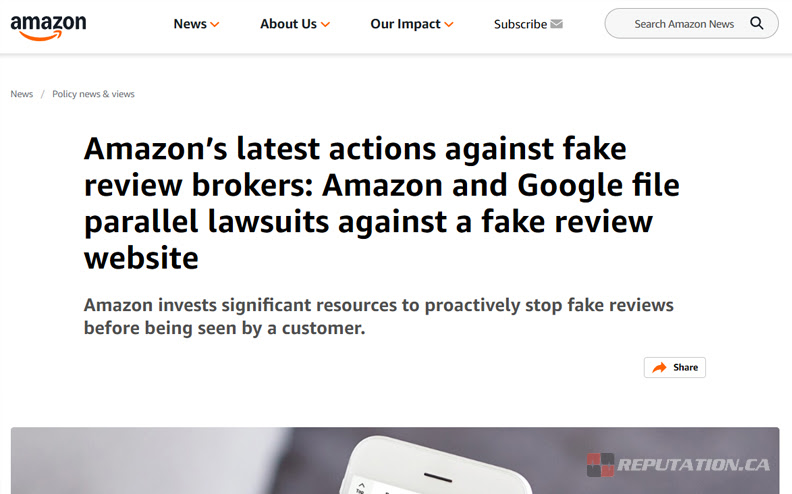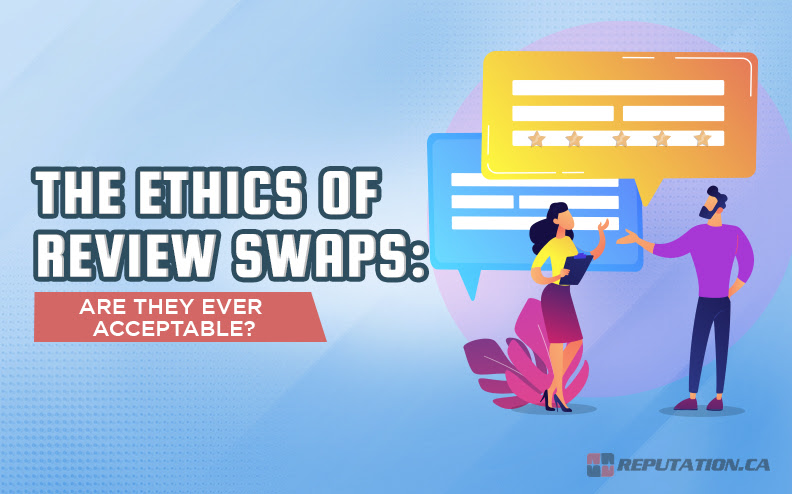Review swaps can give authors a way to try to improve their visibility by exchanging honest reviews on retail places like Amazon. Writers want to improve their book’s credibility. The trust between authors can create successful review swaps that may help all parties involved. The ethical dilemmas and platform policies deserve close attention.
These common practices help to shape some of the results in the publishing world. The long-term consequences need thoughtful analysis. Authors should think about the conflicts of interest and the authenticity of reviews before they participate in any review swaps.
The inner workings behind review swaps deserve some closer examination. Let’s get started on the truths behind the headlines.
Why Review Swaps Are Unethical
Review swaps may appear innocent at first glance. The authors can seemingly support each other by sharing their honest thoughts on the books. However, a much darker truth is hidden behind this widespread practice.
Book buyers often feel cheated when they find out that the reviews actually came from authors trading their reviews with each other. The entire review system has started to break down, and nobody can trust what they read anymore.
Some review swaps force authors into a tough position. The authors may want to support their fellow writers while staying true to their values. Fear of receiving negative reviews or hurting feelings can sometimes give you some overly positive reviews that fail to help the readers.
Authors caught in review swaps face total career destruction. Amazon and other places take quick action – usually shutting down author accounts without any sort of warning. Years of dedicated work and entire storefronts may suddenly vanish overnight from trading just a few reviews.

The FTC now enforces strict guidelines on review practices. Authors might even run into problems because of fines or possible legal problems for misleading readers through review swapping.
This deceptive practice creates ripples throughout the publishing world. The trust that readers place in reviews deteriorates. New authors have a harder time standing out with inflated ratings.
Some authors rationalize review swaps as part of standard practice – this mindset ignores the bigger damage it causes to everyone who’s involved. Each fabricated review can make book discovery harder for the real readers. Authentic reviews start to disappear under questionable ones.
The emotional burden of review swapping weighs heavily. The non-stop fear of discovery and the guilt of posting inauthentic reviews creates intense stress. Authors remain trapped in this cycle without a clear way out.
Conflict Of Interest Issues
Review swaps aren’t the fair deal that they can appear to be. Two authors looking over each other’s work might feel like an easy trade. But the reality is pretty different.
Some serious problems can emerge that harm everyone who’s mixed up in the process. Authors can seem pressured to write very positive reviews when they agree to swap reviews, even if they do find problems with the book. Nobody wants to risk receiving a bad review in return, so real feedback completely vanishes in this endless cycle.
Readers can sometimes lose their trust when they find out about these review-trading arrangements. They’ll immediately dismiss any review once they learn it came from a swap deal. The competition for readers and market share makes everything even more tough to manage. Authors might downplay another writer’s talents or exaggerate their flaws just to better protect their own book sales.

Personal relationships between authors can sometimes complicate these matters. Some authors will try to stay away from hurting their friends’ feelings. Others let their rivalries affect their reviews. The book never receives an honest evaluation either way.
These arrangements can quickly spiral out of control. Authors feel pressured to participate more often and can build up a large network of traded reviews. Publishers start to question every review they see, and readers lose confidence in all reviews they come across.
The results reach more than the authors themselves. Review websites start to lose their credibility. Readers waste money on books with artificial positive reviews. New authors have problems getting real feedback as everyone focuses on trading positive reviews.
Review swaps damage the entire publishing industry. A simple agreement between two authors can undermine the whole book review system. This raises questions about trust, honesty, and all about book reviews.
Amazon’s Terms Of Service
Review swaps can appear harmless at a glance. But you’ll soon find that they’re actually dangerous for authors. Amazon has also put some strict rules in place regarding this kind of practice.
Amazon’s strict stance makes perfect sense. They stay focused on keeping the review system honest and unbiased. This exists because authors who swap reviews will almost always feel pressure to be positive with each other.
Your account could be looking at some pretty scary consequences if Amazon ever catches you doing review swaps. They might just wipe out your existing reviews and completely shut down your entire account. In extreme cases, they might even freeze your money and take you to court.
Authors can end up in full panic mode when Amazon flags them for review manipulation. Their book listings might basically vanish overnight. When dealing with Amazon to fix these situations, it drags on for months that feel endless.

Amazon’s enforcement can seem somewhat random. Some authors openly trade reviews without any problems. But others get hammered for what might feel like small slip-ups. The rules are very clear about review requests too.
You can request reviews in general. But that’s where it has to stop. You break their rules when you give rewards or even hint at what you want the review to say.
Amazon’s rules go even further. Anyone with money at stake isn’t allowed to leave reviews – this includes fellow authors who could be competing with you. They’re very serious about staying clear of even the smallest hint of suspicious activity.
Amazon watches all review activity closely. Their system hunts for signs of review trading by checking items like IP addresses, shopping patterns, and connections between reviewers, too.
This entire situation leaves the authors feeling stressed out. Reviews help move books forward. But natural review growth takes so long to achieve. Even so, you put yourself in huge danger when you try to game their system.
Reviews play a big part in the publishing world, and Amazon knows this well. They crack down hard on any suspicious behavior because they work to make sure that readers can trust what they see.
U.S. Federal Laws And Risks
You might think that review swaps are just a harmless way to try to improve your business website’s ratings. These exchanges can violate U.S. federal law, and the Federal Trade Commission takes action on these violations faster than you might expect.
Business owners should know that swapped reviews can qualify as payment according to the FTC. When you agree to trade reviews with another person, you create a business arrangement. This needs disclosure under FTC guidelines about reviews and endorsements.
The penalties for these rule violations can devastate any business. Each single violation can leave you dealing with fines as high as $43,792. A car dealership learned this tough lesson when the FTC imposed a $3.6 million fine over their fake reviews. Ouch.

Customers depend on honest reviews to make well-thought-out purchases. You probably check the reviews yourself before buying any items and trust that those opinions come from actual customers. Some people believe that they can exploit loopholes or create sneaky workarounds.
Review swaps can erode trust and mislead the shoppers who are trying to make well-educated decisions. Google is vigilant against review swaps on its platform. Their system can detect unusual review patterns, and when they find swaps, they remove the reviews from your profile.
The expansion of online marketing complicates fake review detection. The FTC updates its rules to manage these new challenges in its programs.
Review swaps hurt your business reputation. Your competitors could report you directly to the authorities. Your authentic customers might post negative feedback after they find your deception. This temporary rating improvement puts your entire business in danger.
Social media and smartphones enable everyone to share their experiences through reviews. The FTC monitors online marketplaces closely and stands ready to catch anyone who manipulates reviews.
Your book deserves some real feedback without resorting to any shady plans. You might feel a bit nervous about the reviews. There are better ways out there to get them than swapping.
Beta readers can give you some very authentic feedback on your work. These passionate readers legitimately want to help polish your book to completion. The time you spend to find them proves worthwhile. Let’s check out some legitimate options that can hit the mark.
When you write, communities can give you another main source of real feedback. You’ll find your fellow authors in locations like Critique Circle who know what makes stories work. These experienced writers often find those problems you might have missed.
Book clubs bring more results than you might have expected. Authors gain quite a bit from group discussions about their work. The conversations often show ideas you’d never see through quick review trades alone.

ARC (Advance Reader Copy) programs have become popular with indie authors. Sites like BookRoar and LibraryThing connect you to excited readers who want first dibs on new books. These readers usually share real reviews of what they’ve read.
Real connections with readers take more effort than easy review exchanges. Social media can give you the perfect space to share your writing process with possible fans. This sort of openness builds trust and creates long-term relationships with your audience.
Authors who create organic growth see better results over the long run. Your interactions and behind-the-scenes glimpses create a loyal community of readers who naturally want to share honest thoughts about your work.
Fake reviews can hurt your reputation. Readers don’t like artificial feedback and like authentic opinions from people who legitimately connect with your story.
Integrity And Trust In Reviews
Review swaps might feel like an easy way for you to get some feedback on the books you have written. But you’ll end up causing way more harm than good to your writing career and to the whole author community. Just think about how disappointed you might have felt after buying something with reviews that turned out to feel lackluster.
Your own readers care about seeing honest reviews, and once you break their trust, it can be very hard to get it back. When you build strong connections with your readers, it takes time and real interactions. When you let them see the real reviews (even the ones that aren’t so perfect), they’ll like that you trust them to make their own options.
These loyal readers will naturally want to share your books with others. Personal recommendations can be priceless in the writing world. One authentic review from someone who has loved your book can spark real interest from other readers. This kind of natural excitement is much better than what any review swap could ever give you.

Authors depend on having trust and authentic support in order to succeed. Review swaps create fake success stories that end up only making everyone look bad. Real success comes from actual readers who like the things that you write.
Online retailers have become skilled at finding review trades and other similar plans. Their watching systems can detect all kinds of suspicious review patterns. If you get caught, you could risk losing your reviews or even your entire author profile. A quick improvement in ratings isn’t worth putting your writing career at risk.
Recent Enforcement By Amazon
Review swaps on Amazon are becoming a much bigger problem than ever before, and the platform is actively fighting back against these fake reviews. Amazon now uses some of the advanced tech and legal teams to catch anyone who tries to cheat the review system. They have already stopped more than 250 million fake reviews from appearing in the year 2025.
Review swaps will always leave some online traces behind, even if you don’t yet realize it. Even though these patterns might often feel random to you, Amazon’s technology spots them faster.
Authors are now struggling more with Amazon’s stricter rules. Your book reviews can disappear overnight. This happens to more authors than you might expect sometimes.

Amazon is taking people to court over review manipulation in America, China, and even Europe. Even some small-time authors who just wanted to exchange a few of their reviews are caught up in these sweeps. Your own author account could end up suspended or, worse, banned for good if you’re not very careful.
Amazon isn’t fighting this battle alone now. They have teamed up with other businesses like Tripadvisor and Expedia as part of their Coalition for Authoritative Reviews. Together, they share information about fake review sellers and work on creating new ways to catch people breaking the rules.
The tech that watches Amazon’s reviews is better each day. Their AI system spots unusual review patterns and flags activity that looks suspicious before it ever shows up on the site. The platform also monitors some social media and a few messaging apps to catch anyone planning review swaps.
Monitor and Manage Your Reputation
You can slowly build up your reputation. But you can also lose it much faster. When customers find fake reviews, they often feel that same deep disappointment and betrayal that you might experience when someone deceives you.
Real engagement and honest feedback that comes from actual customers will usually generate far better results. Authors who may be looking to get more readers or businesses that are trying to grow face non-stop pressure.

The easy path always beckons. Your reputation means too much to put in danger. A small group of loyal fans who legitimately care about and value your work matters more than inflated numbers that give you no real substance.
Your online reputation can reach its full potential with expert input. We at Reputation.ca will give you personalized help and services to manage your reviews, social media presence, PR, and reputation emergencies. Our team stands ready and will help guide and support you through your social media challenges and business website problems. Contact us today!











